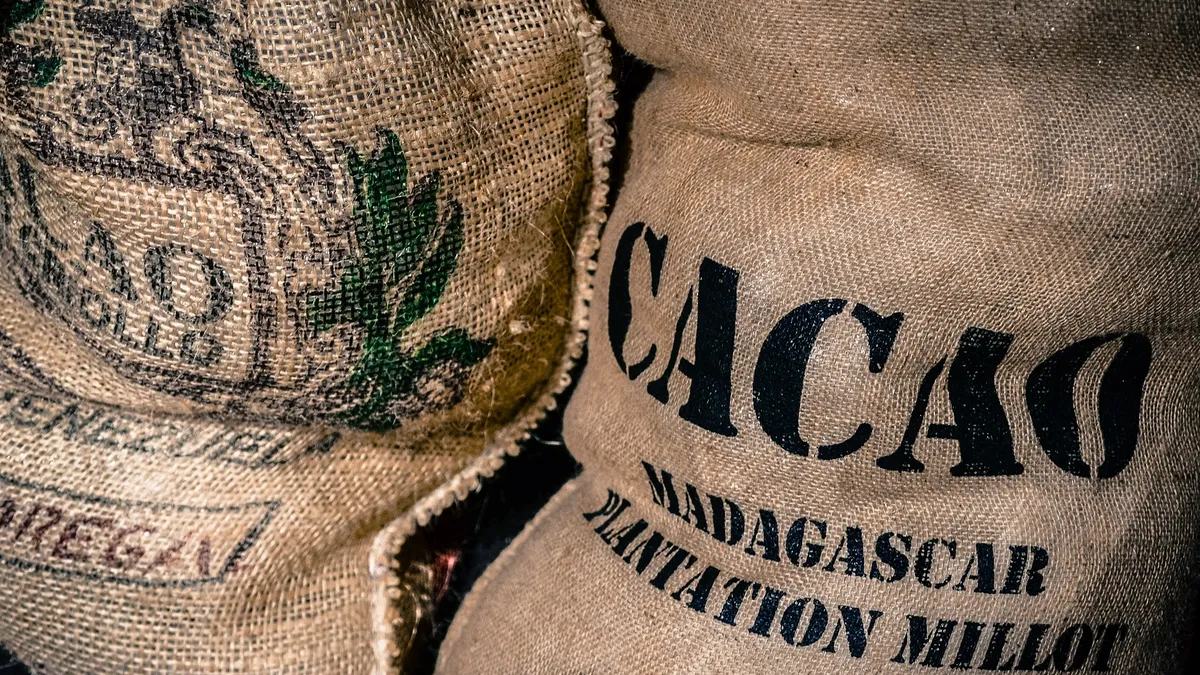Dive Brief:
-
Mars will spend $1 billion over the next 10 years in an attempt to improve the sustainability of its cocoa supply chain, according to Reuters.
-
The company pledged that all of its cocoa will be responsibly sourced by 2025 — which means ensuring it doesn't contribute to deforestation or child labor — and that farmers will get paid more for using responsible practices.
-
John Ament, Global Vice President of Cocoa, told Reuters while the company had previously relied on certifiers such as the Rainforest Alliance and Fairtrade, it now sees those certifications as insufficient to ensure sustainable practices and a good wage for farmers, which have been losing income despite only growth in demand for cocoa. The company is, therefore, transitioning to setting higher standards internally.
Dive Insight:
The first step in fixing a pervasive problem is admitting that the problem exists. Mars and the major players in the cocoa industry have done so openly for many years, but solutions have been slim.
Last year, the largest companies involved with the production of cocoa products within the World Cocoa Foundation (WCF), joined to form the Cocoa and Forests Initiative that seeks to halt deforestation and the degradation of forest cover within the cocoa production supply chain. And Mondelez International signed a Memorandum of Understanding (MOU) with the Forestry Commission of Ghana, Ghana Cocoa Board and the United Nations Development Programme (UNDP) to reduce emissions in the country's cocoa supply chain.
Despite all of these initiatives, concrete solutions and real progress have been scarce. The Cocoa Barometer Report released in April concluded 10 years of work to improve the sustainability of the cocoa industry had been minimally effective.
Mars' new plan relies on increasing firsthand visibility and traceability in its supply chain, using GPS mapping to make sure that cocoa is not coming from protected forests, and working directly with 75,000 farmers to increase productivity and diversify crops for steadier income.
Chris de Wolfe, Director of Corporate Risk for Mars, said at the Institute for Supply Chain Management's 2018 conference that the low income of cocoa farmers is a supply chain risk, as farmers may choose to grow another, more lucrative crop.
Demand for cocoa is not slowing down despite the industry's many humanitarian and agricultural issues. The value of the U.S. chocolate market alone is expected to surpass $30 billion by 2021, according to a 2016 TechSci Research report.
Correction: In a previous version of this article, the founding date of the World Cocoa Foundation was misstated.














